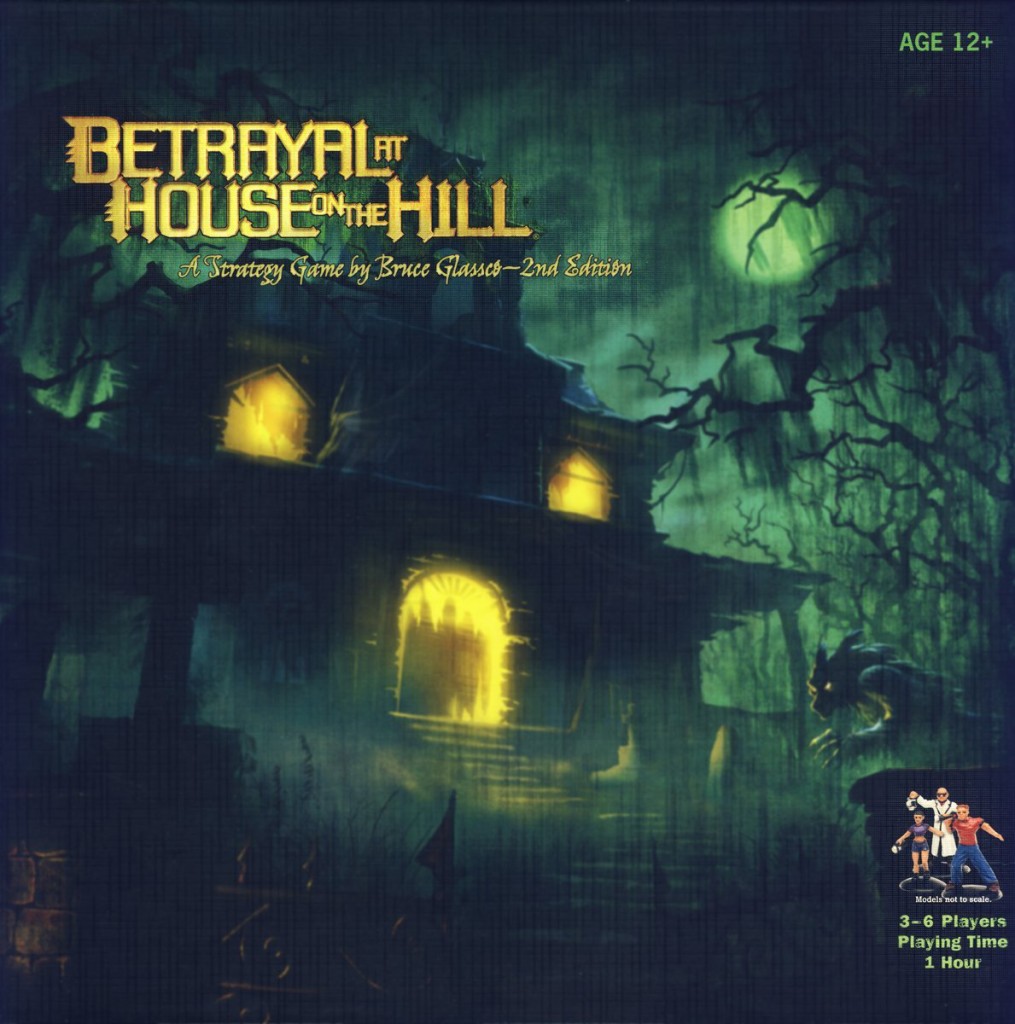
Nervously, the cherubic little girl inched her way through the darkness of the old house on the hill. Somewhere along the way, she had become separated from the others trapped with her: the old professor, the little boy, the jock, and the bookworm co-ed. She’d pulled a dusty spirit board out of the cobwebs, though not without something unseen and vicious trying to bite her. Where was everyone?
Then there was a call of triumph from the distance. The bookworm had uncovered one of the two artifacts needed to allow the rightful heir of the Romanescu family to reclaim their heritage. Too bad. It was, after all, a heritage the little girl’s family had usurped centuries before, and would kill to keep. The hired assassins she had already stationed throughout the rooms and corridors would see to that, ending the heir and any of the other fools who presumed to meddle…
The above represents a somewhat dramatized version of the first half of one of the games of Betrayal at House on the Hill that we played this weekend after impulse buying it based on watching this video. Dawn and I clicked on it just by randomly seeing Ashly Burch’s face, since we like the cut of her jib, but then the game began and we were intrigued. B-movie horror theme? Modular game board, built as the players progress so that it’s different every time? A massive twist at some point where one of the players turns out to be a traitor out to get the others?
Sure, plenty of other games have traitor scenarios, but two things intrigued me here. One, that depending on an intersection of how the twist is triggered, one of fifty different horror/suspense scenarios would be played out, with hidden victory conditions for the heroes and the traitor. Two, that the traitor doesn’t know they’re the traitor until it happens. In the game above, I was just an innocent little girl exploring a scary house, and then suddenly I was a schemingly ruthless Master of Assassins bent on killing the rightful heir to my family’s fortune before they could realize their destiny. Meanwhile my wife and the other players now had to try to conceal which of them was the heir while staying alive long enough to help them… well, I had hints and thoughts of what they were trying to do but in some ways I was as in the dark as they were, even though I didn’t share their terror of taking every step as if it might be their last. For the professor and co-ed, it was, and they died to knives in the dark, but the accursed little boy and the jock (the heir) lived just long enough to foil me!
It was probably just as well or the forces of Evil would have had a clean sweep, after the redneck torture zombies and werewolves had their way in our previous games. It meant I was on the losing side each time — *fist shake* — but the game lived up to its potential as a great storytelling exercise, a journey into the unknown as full of wonderment as it was full of terror. We have but barely scratched the surface of those fifty haunt scenarios and I can’t wait to try out more. And I love that unlike most games’ traitor scenarios, you are quite literally on the side of the angels… until you aren’t.
Because of its somewhat random nature on what the house looks like, what items are out and when the haunt begins (and what the haunt is), not every game of BaHotH is going feel balanced — the werewolf, for example, sprouted early and thus made chewtoys of us in short order. But the saving grace is that playing time tends to be manageably short and the mechanics and possibilities have enough lure that a not-so-satisfying game means you just play again and something entirely different happens.
In short, I do not regret a penny of our impulse buy, and if such things intrigue you as well, I’ll just close out by saying that as of this writing Amazon still has it on sale. Happy haunting!







